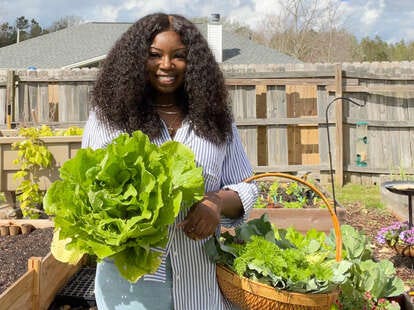If you're wondering whether consumers are going to start pulling back on spending in prep for a recession, the answer is already here.
Women, who make 70% of household purchasing decisions, are shifting into economic prep mode at unprecedented rates.
The numbers from our latest Guardian research are stark: Two-thirds of women are already prepping for recession with their budgeting behaviors.
62% of women say the economy is worsening, versus 47% of men.
70% of Gen Z women say their financial health is all they think about today.
This morning on the train, I overheard a conversation: two women debating which grocery stores offer the best deals and how they're finding cheaper ways to visit their extended families this summer. Meanwhile, the men to my right were talking about the upsides of crypto as a hedge against the market.
“Here’s what everyone missed: women aren’t being pessimistic about the economy – they’re being realistic,” said Libby Rodney, chief strategy officer of Harris Poll. “Women are experiencing the sharp edge of inflation on essentials like groceries and childcare in ways that stock portfolios can’t capture.”
Featured in The Guardian
The Kitchen Table CFOs

Women have become the unacknowledged chief financial officers of American households.
70% of women in relationships report being primarily responsible for their household's overall shopping, specifically handling clothing and personal shopping (72%), household essentials (69%), grocery shopping (68%), and holiday and gift shopping (69%). Over half (59%) say they're primarily responsible for tracking household expenses.
When you're the one physically watching milk prices climb from $3.99 to $5.49, when you're the one researching childcare costs that rival mortgage payments, when you're the one making daily decisions about whether to buy name-brand or generic—you develop a different relationship with economic "indicators" than someone tracking their 401k from an app.
Women Are Worried

“We're witnessing a generation living in what we call 'anticipatory financial distress.' This isn't casual concern; it's the mental equivalent of holding your breath underwater, waiting for the surface."
Libby Rodney, featured in The Guardian
The numbers tell a story of two very different economic experiences:
Women are significantly more concerned about overall economic uncertainty than men (83% vs. 73%).
More women believe their financial security is getting worse (40% vs. 29%), with the gap particularly pronounced among younger women.
Millennial women are 16 percentage points higher (36% vs. 20%) and Gen Z women are 13 percentage points higher (44% vs. 31%) in saying their financial security is getting worse than that of their male counterparts.
Perhaps most telling: 7 in 10 Gen Z women feel like their financial health is all they think about today (versus 61% of Gen Z men).
We're witnessing a generation living in what I call "anticipatory financial distress"—the mental equivalent of holding your breath underwater, waiting for the surface.
The Recession Prep Economy
While economists debate whether we're heading into a recession, two-thirds of American women (67%) are already prepping for one with their budgeting and shopping behaviors. This isn't panic—it's strategic adaptation.
More women have:
Cut back on personal discretionary spending (62% vs. men: 48%)
Switched to lower-cost brands (56% vs. 45%)
Started shopping their own closet before buying new items (51% vs. 44%)
Entered "low buy mode" (46% vs. 39%)
Meanwhile, men are more likely to say they have no plans to switch to lower-cost grocery stores (33% vs. women: 28%) or lower-cost brands (28% vs. 23%). When essential costs skyrocket, "treating yourself" culture feels like a joke. Brand loyalty becomes a luxury many families can't afford.
Four in five women have adopted at least one preparation measure to deal with economic uncertainty, from delaying major purchases to growing their own food. This isn't just budgeting—it's women carrying the invisible mental load of keeping their families financially afloat while the economy throws curveballs.
What This Means for Business
For marketers and business leaders, women's economic anxiety isn't just a demographic insight—it's a canary in the coal mine. When people managing day-to-day household finances start shifting behaviors at this scale, broader economic shifts will eventually impact everyone.
Banks- Talk to Women!

76% of women are prioritizing shoring up emergency funds versus 63% of men, and single women under 30 are 21 percentage points more likely to be building emergency savings than single men under 30 (77% vs. 56%).
If you're in financial services and not building products specifically for women's saving behaviors, you're missing a giant growth opportunity. Women aren't just saving more—they're saving differently, more strategically, and with greater urgency.
Other Signals You Can Act On
Grocery and CPG Companies Know Where You Sit- ‘Splurge or Save’: When 56% of women have switched to lower-cost brands, and 51% have switched to lower-cost grocery stores, this isn't temporary belt-tightening—it's a shift toward a save and splurge mentality. The brands winning right now focus on either the ‘save’ category— making high-quality products accessible and fun, or the ‘splurge’ category — making products with status, design, exclusivity, and community built into it (e.g., think Trader Joe’s vs Erhewon).
Clothing & Goods Brands Upcycle: Women are shopping their own closets (51%) and entering "low buy mode" (46%). Brands that help extend the life of what people already own—repair services, refurbishment, quality over quantity messaging—align with this new mindset.
Foster The Deals: There's a huge opportunity in apps that help with automated price comparison, AI deal hunting, bulk buying coordination, and expense tracking. Women are already doing this work manually—who's going to make it easier?
The Daring Twenties Response
This financial vigilance fits perfectly into what we've identified as "The Daring Twenties"—Americans are taking matters into their own hands rather than waiting for institutions to solve their problems.
As we've seen in our recent research on consumer boycotts, this economic anxiety intersects with values-driven consumption, with 43% of Gen Z women actively finding ways to opt out of the economy entirely. Women aren't just worrying about the economy; they're actively reshaping how they participate in it.
From bulk-buying to bartering, from growing their own food to joining store loyalty programs, women are creating their own economic security systems. They're not victims of economic uncertainty—they're pioneers of economic adaptation.
The question for the rest of us: Are we listening to what the canaries are telling us about the coal mine? Because when the people actually managing America's household budgets start preparing for economic turbulence, it might be time to take notes rather than dismiss their concerns.
Big shout-out to Jack Cooney, who led this research in partnership with The Guardian.
3 Links
Curiosity is contagious; if you like this newsletter, please share it!!
Penned by Libby Rodney and Abbey Lunney, founders of the Thought Leadership Group at The Harris Poll. To learn more about the Thought Leadership Practice, just contact one of us or find out more here.
Thanks for reading The Next Big Think! Subscribe for free to receive new posts and support my work.











Great share, but also frightening. Do you have a sense of how this compares to spending pullbacks in the past?